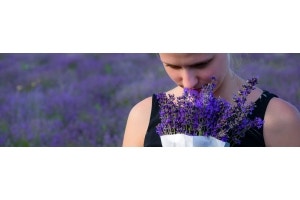
Halloween, Samhain, dia de los Muertos: halfway between equinox and solstice, between life and death, between this world and the next.
All around the world, this is the time to honour our ancestors. A time for remembering.

Flowers - A Link To The Afterlife
Rituals at this time of year have ancient roots stretching around the globe and back through time. Almost every civilisation through history, every tribe, has ceremony and commemoration to honour and remember the dead as they pass from this life, to whatever they believe the next life holds - eternal joy in heaven, or food for future plants.At least 6,000 years ago, Native American tribes were using plants like peyote cactus in ceremonies to commune with their dead.

morning glory and salvia in northern America;
coca and tobacco in southern America;
cannabis and wine in Europe;
rue and datura in Asia; coffee in the Middle East;
kava and pituri in Australasia.

Flowers - A Gift For The Dead
Twelve thousand years ago, someone placed bunches of local wildflowers and flowering herbs into a grave, beneath the bodies, to mark their passing. The flowers were ceremonially placed, and in quantity, creating a soft and fragrant carpet on the earth. The people who placed those flowers may have been wearing animal skins, not black suits, but the impulse to use flowers and plants in our mourning ceremonies continues centuries later. We are the same across space and time.
potted chrysanthemums to mark All Saints and All Souls;
biodegradable wreaths for sea burials;
or ancient grave goods.

Flowers For All Saints & All Souls
These flower images - from Australia, Canada, Chile, France, Germany, India, Indonesia, Japan, Korea, Mexico, Poland, Russia, Spain, UK, USA, and Vietnam - show that when it comes to remembering a loved one, plants are essential elements of human ritual. Wherever we are, and whatever belief system we hold. Our similarities are greater than our differences.Chrysanthemums are traditional flowers for All Saints and All Souls Days commemorations, on 1-2 November, as they flower in the northern hemisphere's autumn when the day occurs. For many older Europeans they are entirely associated with funerals and grave offerings - and hence unlucky to bring into the home.

Flowers For Day of the Dead
Orange marigolds - cempasuchil or cempaxochitl - are traditional for Day of the Dead celebrations in central America, where they are used to make flower carpets and decorations.The biggest and brightest are used for Dia de los Muertos, 1-2 November, and to plant in cemeteries through the year;and historically marigold flowers were used to create an infusion to bathe and purify the dead.


Flowers - The Circle of Life
Wreaths are often favoured for mourning around the world - here, Germany, Thailand, Japan, and Australia. The circle represents the belief of eternal life, rebirth into the next life - or the Law of Conservation, as matter cannot be created or destroyed.Floral tributes, particularly wreaths, play a significant part in formal military ceremonies to remember those killed in conflict.Poppies are associated with Remembrance Day November 11, as the trenches and turmoil on the land raised long-dormant seeds to the surface. The light helped them germinate and flower for years after in the WWI battlefields.Rosemary is linked to the battlefields of Gallipoli, for ANZAC remembrance on 25 April.

Flowers - Universal Symbol of Grief
Spontaneous displays of grief, and memorials for those we have lost, often start with a single flower, and become a secular shrine marking a place to remember them. From New York parks to Russian memorials, temporary tributes and more permanent reminders,flowers still remain the link between the living and the dead;
the way we choose to celebrate and remember those who have gone before.

















